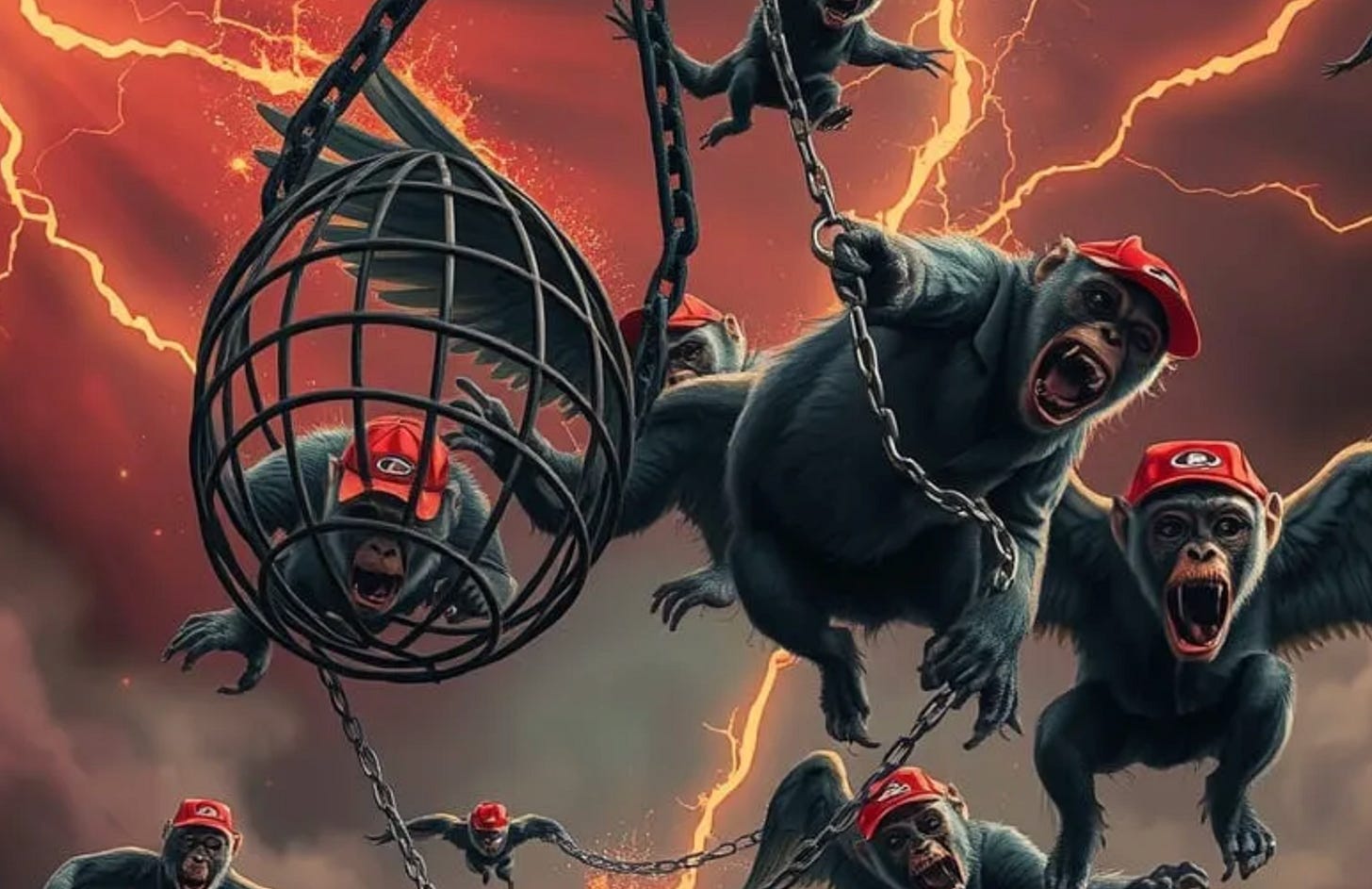Gatekeepers Opening the Doors to Chaos: How Thune, Johnson, & Roberts Have Manufactured Trump’s Power to Break Things
Not popularity—permission: Trump’s power is conferred by élites who take down guardrails and normalize distributed chaos, with institutional passivity becoming a machinery of wreckage. Trump doesn’t wield power alone; it’s lent to him by party barons and a deferential Court. The result is a durable capacity to break things without building anything…
Josh Marshall on the 2025 election:
Josh Marshall: A Few Day-After-the-Election Thoughts <https://public.hey.com/p/qK6R86USmK6c6Hc8UyKALUHm>: ‘As the results were coming in last night, Trump hopped on Truth Social and declared that none of it was his fault. Republicans were getting hammered, he insisted, because 1) he wasn’t on the ballot and 2) the shutdown. Not my fault is typical Trump. But… Donald Trump won’t ever be on the ballot again…. And he seems to be conceding that the shutdown is a disaster for Republicans….
The biggest impact of last night’s result may be to collapse D.C.’s collective denial about the sheer scale of Donald Trump’s unpopularity…. He does have a lot of power. He can break things. A lot of things. Here and abroad…. The political class has read Trump’s power, perversely, as popularity…. But that’s not how it works…. A number of morning-after reviews I’ve seen say… Democrats… still hadn’t addressed… [whether] it [is] a future of Spanbergers or Mamdanis…. That doesn’t seem quite right…. Find candidates suited to their constituencies and focus on cost of living issues and opposition to Donald Trump’s autocracy. Full stop. It’s not more complicated than that…
My thoughts: With respect to the question of Trump’s power: Trump has power only because Thune, Johnson, and Roberts give him power. Authority in American politics is rarely self-executing; it is conferred, shielded, and normalized by gatekeepers who choose accommodation over constraint. Senate Majority Leader John Thune, House Speaker Mike Johnson, and to an appalling degree Chief Justice John Roberts have repeatedly treated Trump’s demands as binding party discipline—whether by structuring impeachment defenses, stalling bipartisan immigration frameworks, or aligning the House calendar to electoral strategy—thereby transforming personal leverage into institutional muscle. It is true that Roberts has not endorsed every Trump claim. But his key rulings on presidential immunity, administrative deconstruction, and deference to claims of executive prerogative have greatly widened the zone in which a willing political movement can act.
Why? They do not have to do so.

